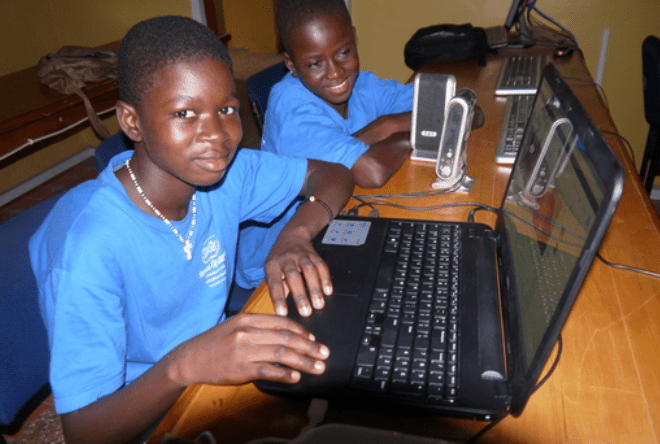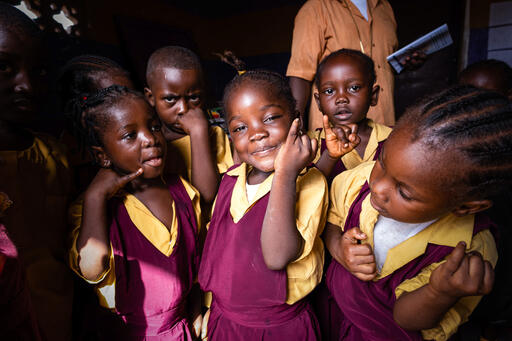
Can data be transformed into policy so that children everywhere, even the most disadvantaged, can realize their right to learn?
A project, known as MICS-EAGLE for its use of Multiple Indicator Cluster Survey (MICS) data to advance Education Analysis and Global Learning for Equity (EAGLE), has helped countries do just that in its first year. The MICS-EAGLE project, which is funded by the Global Partnership for Education Knowledge Innovation Exchange (GPE-KIX), aims to help countries make better use of their education data, directing it towards evidence-based policymaking and advocacy. At least three countries: Lao PDR, Mongolia and Georgia, have already shown how they’ve used data to inform education policies.
The MICS-EAGLE project first engages with countries to develop education factsheets that provide data-driven insights on areas such as school completion and dropout, the prevalence of early childhood education (ECE), foundational learning skills, and access to remote learning tools. Countries can then hold national workshops to interpret and share this information, with the objective of feeding it into the development of education sector plans and other policy documents.
In Lao PDR, for example, the need to increase access to early childhood education, especially for poor children and those living in rural areas, was highlighted by MICS–EAGLE data and eventually incorporated into policy recommendations. Following the convening of the national workshop, several key policy documents, including the country’s 9th Education and Sports Sector Development Plan (ESSDP), were amended to prioritize equity in education for poor children. This quote from the Lao PDR ESSDP clearly reflects findings of the MICS-EAGLE country report: “Despite a rise in participation from children in the bottom 20 per cent of households, most attendance in kindergarten and pre-primary classes are still from urban areas and rural areas with good road access. Data show that poorer and rural children have less chance of attending ECE, as do those whose mothers are less educated.”
In Mongolia, MICS-EAGLE data contributed to elements of an education sector plan focused on ensuring equitable access to education for children with functional difficulties. During the national workshop, matters of education quality and disparities in completion rates, out-of-school rates, and adjusted net attendance rates between children with and without functional difficulties were raised. Data revealed, for example, that 10 per cent of children of lower secondary school age with any functional difficulties are out of school, compared to just 3 per cent of all other children. These data were reflected in the Education Sector Mid-Term Development Plan (ESMTDP) 2030, which for the first time includes a focus on quality education and ensuring equitable access to education for disadvantaged children, including those with functional difficulties.
Source: MICS-EAGLE Factsheet, Mongolia, forthcoming
The case of Georgia is even more remarkable because the country took its policymaking initiative a step further and adopted legislation to monitor out-of-school children and children at risk of dropping out. The new programme requires education researchers, policy makers and service providers to work hand in hand to analyze data on out-of-school children and define the range of educational, social or economic factors that lead children to abandon school.
During the MICS-EAGLE national workshop in Georgia, education stakeholders used data from the Georgia factsheet, to draw attention to the socioeconomic aspect of children leaving school. The poorest children in Georgia of upper secondary school age are out of school at five times the rate of the richest children (20 per cent versus 4 per cent). Relying upon data such as this, the workshop advanced recommendations that were shared with the Ministry of Education and Science that were eventually adopted.
These are just some examples of how MICS-EAGLE is improving the evidence base on education and directing it towards informed policymaking. The ultimate goal of data-driven policies such as these are to enhance educational opportunities for children across the globe, especially those most in need.




